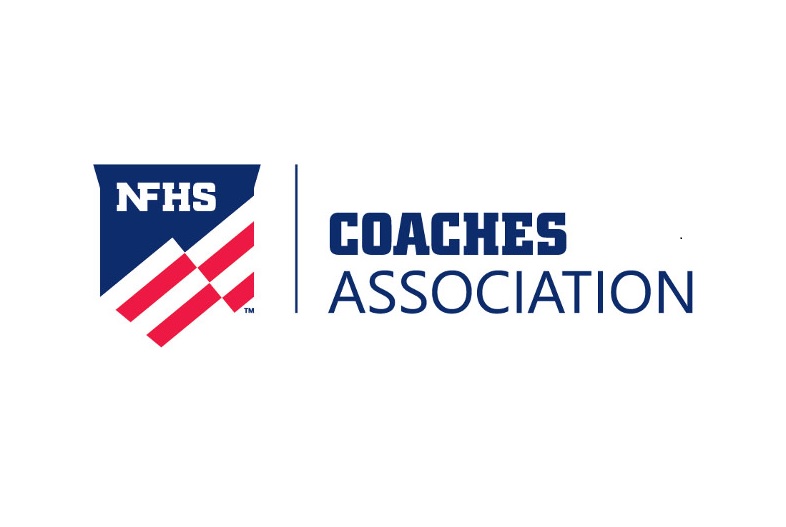
'Hearts' Focus Includes Action Planning
November 12, 2015
By Geoff Kimmerly
Second Half editor
As most of Michigan’s high school athletes move inside this month for the start of winter sports, many will take part in a program introduced to Michigan High School Athletic Association member schools this fall that assists coaches and students in preparing for the possibility of a health emergency during their after-school practices and events.
Prior to the start of this 2015-16 school year, the MHSAA sent every member school the “Anyone Can Save a Life” emergency action plan authored by the Minnesota State High School League and the Medtronic Foundation. The program instructs schools to assemble teams made up of coaches and their students that will act in the event someone suffers sudden cardiac arrest or another emergency medical situation.
“Anyone Can Save a Life” suggests a game plan that establishes four teams on every level of every sport in a school – a 911 Team, CPR (cardiopulmonary resuscitation) Team, AED (automated external defibrillator) Team and Heat Stroke Team. The groups are made up of coaches and their students who will be in close proximity to all after-school activities.
It’s another valuable tool as the MHSAA begins work on the fourth piece of its eight-year “4 H’s” health and safety emphasis. The next two school years focus on Hearts to go with efforts over the last six years centered on Health Histories, Heads and Heat issues faced by MHSAA athletes. This fall, for the first time, all varsity head coaches at MHSAA member schools were required to have CPR certification – another means by which athletic personnel can work to counter the random, unpredictable nature of sudden cardiac arrest.
“There is something we can do. We can be prepared. We can develop emergency plans, display AEDs and deliver CPR. And, like any good sports teams, we need to practice our preparations,” MHSAA Executive Director John E. “Jack” Roberts said. “’Anyone Can Save a Life’ can help schools revise or revitalize their existing emergency plans in ways that engage team members in planning, practice and execution. This could help save lives now and also convey important lifelong life-saving lessons to students involved on these teams.”
Students are a vital component to having a successful emergency action plan. They will be put in position to call 911, meet the ambulance at a pre-determined access point, locate the nearest AED, make sure immersion tubs are filled for hot-weather practices, and for those who are trained, to assist with CPR. Coaches identify students at the beginning of the season and prior to an emergency taking place, and provide them with the details of the job they are assigned so they will be ready to assist in the event of an emergency.
The “Anyone Can Save a Life” plan was sent to schools nationwide with assistance from the National Federation of State High School Associations and the NFHS Foundation. Click for information on "Anyone Can Save a Life."
“The ‘Anyone Can Save a Life’ initiative promotes the need to have and to practice planning for different kinds of emergencies,” Roberts said. “The result can be a fresh, comprehensive emphasis on preparing for emergencies well before they occur and then responding with more confidence when those emergencies inevitably happen. It is the perfect link between the last two years when we focused on heat illness and the next two years when we focus on sudden cardiac arrest.”
This fall’s focus on “Hearts” began in the wake of 122 Michigan schools receiving recognition this spring as HEARTSafe by the Michigan Department of Health and Human Services, Michigan Department of Education, American Heart Association, Michigan Alliance for Prevention of Sudden Cardiac Death of the Young and the MHSAA.
Public Act 12 of 2014 requires all schools (grades kindergarten to 12) to have a cardiac emergency response plan in place. This MI HEARTSafe School designation recognizes 122 schools that have taken steps above and beyond to prepare to respond in the event of a cardiac emergency, and is awarded for a period of three years.
In order for a school to receive MI HEARTSafe designation, it must perform at least one cardiac emergency response drill per year, have a written medical emergency response plan and team, have current CPR/AED certification of at least 10 percent of staff, have accessible, properly maintained and inspected AEDs with signs identifying their location, and ensure pre-participation sports screening of all student-athletes using the current physical and history form endorsed by the MHSAA.
Schools that meet all requirements are able to apply for the MI HEARTSafe School designation each year. Click for information and for a list of designated schools.

Michigan Leaders in 3 Sports Earn National Honors from NFHS Coaches Association
By
Geoff Kimmerly
MHSAA.com senior editor
January 16, 2024
Detroit Cass Tech boys basketball coach Steve Hall, Farmington Hills Mercy girls golf coach Vicky Kowalski and East Grand Rapids girls swimming & diving coach Butch Briggs and have been named a 2022-23 National Coach of the Year in their respective sports by the National Federation of State High School Associations (NFHS) Coaches Association.
They were selected by a committee including representatives from all eight NFHS sections – Michigan is part of Section 4 with Illinois, Indiana, Iowa and Wisconsin.
The following brief bios include an excerpts from each honoree’s coaching philosophy, which nominees were asked to submit after being identified as candidates for the awards.
 Steve Hall guided Detroit Cass Tech to its first MHSAA Finals championship last season as the Technicians capped a 28-1 run. He’s 160-30 in his eighth season directing Cass Tech, with his team 9-0 this winter, and he has a career high school record of 370-103 having also coached at Detroit Rogers (1996-97 through 2004-05) and Detroit Northwestern (2005-06 through 2007-08). He led Rogers to three straight Class D championships from 2003-05, led Northwestern to its first Detroit Public School League championship in 30 years and Cass Tech to its first in the PSL in 19 seasons. He also coached collegiately as an assistant at Duquesne University (2008-09 through 2011-12) and Youngstown State University (2011-12 through 2014-15) before taking over at Cass Tech for the 2015-16 season. He has received multiple state Coach of the Year awards during his tenures at Rogers and Cass Tech, and also serves the latter as athletic director and boys cross country coach.
Steve Hall guided Detroit Cass Tech to its first MHSAA Finals championship last season as the Technicians capped a 28-1 run. He’s 160-30 in his eighth season directing Cass Tech, with his team 9-0 this winter, and he has a career high school record of 370-103 having also coached at Detroit Rogers (1996-97 through 2004-05) and Detroit Northwestern (2005-06 through 2007-08). He led Rogers to three straight Class D championships from 2003-05, led Northwestern to its first Detroit Public School League championship in 30 years and Cass Tech to its first in the PSL in 19 seasons. He also coached collegiately as an assistant at Duquesne University (2008-09 through 2011-12) and Youngstown State University (2011-12 through 2014-15) before taking over at Cass Tech for the 2015-16 season. He has received multiple state Coach of the Year awards during his tenures at Rogers and Cass Tech, and also serves the latter as athletic director and boys cross country coach.
“My coaching philosophy is ‘Learning Life Skills Through Basketball.’ I have encountered many youngsters that value basketball more than anything. Therefore, I use basketball as a carrot to dangle to help them acquire life skills and other necessities that can benefit them in their lives. Ultimately, when the ball stops bouncing they may be quality fathers, husbands, principals, CEOs, etc., and positive contributors to society. My motto is, “Be better today than yesterday and better tomorrow than today.” My athletic philosophy is scholarships and championships in that order! We love to win. But winning is not only on the scoreboard but also in life. Accountability, Reliability, Dependability and Responsibility. “Do what you are supposed to do, be where you are supposed to be, every play and every day.” God has blessed me with high morals, values and unmatched energy to leave my student athletes better than I found them.”
 Vicky Kowalski completed her 46th season this fall coaching Farmington Hills Mercy’s girls golf team, and led the program to its second-straight Lower Peninsula Division 2 championship and fourth MHSAA Finals title overall. Her teams also have won seven Regional and 21 league championships and were 220-50 in matches entering the season. She has received several coaching awards over the years including statewide awards from the Michigan Interscholastic Golf Coaches Association (MIGCA) and Michigan High School Coaches Association (MHSCA). Kowalski also is in her 22nd season as Mercy’s girls bowling coach and has coached multiple subvarsity seasons of basketball and volleyball as well. She’s been inducted into Halls of Fame by both MIGCA and the Michigan High School Interscholastic Bowling Coaches Association (MHSIBCA).
Vicky Kowalski completed her 46th season this fall coaching Farmington Hills Mercy’s girls golf team, and led the program to its second-straight Lower Peninsula Division 2 championship and fourth MHSAA Finals title overall. Her teams also have won seven Regional and 21 league championships and were 220-50 in matches entering the season. She has received several coaching awards over the years including statewide awards from the Michigan Interscholastic Golf Coaches Association (MIGCA) and Michigan High School Coaches Association (MHSCA). Kowalski also is in her 22nd season as Mercy’s girls bowling coach and has coached multiple subvarsity seasons of basketball and volleyball as well. She’s been inducted into Halls of Fame by both MIGCA and the Michigan High School Interscholastic Bowling Coaches Association (MHSIBCA).
“I have always believed in participation. On all the teams I have coached, everyone plays – no one sits the bench. All my athletes have their opportunities to grow in the sport. I have always preached dedication and sportsmanship. The athletes practice well to perform well. They encourage teammates as well as competitors. I enjoy interaction with other coaches. We share coaching techniques and ideas for improving team performance.”
Milton “Butch” Briggs has led the East Grand Rapids girls swimming & diving team to a record 26 MHSAA Finals team championships, the first in 1978 and including six straight from 1981-86 and the program’s current three-year title streak. His girls program also has celebrated 105 individual or relay Finals champions and clinched 33 league team titles. Briggs has received several coaching awards, including nationally for his sport (girls and boys combined) from the National High School Athletic Coaches Association (NHSACA) in 2000 and the NFHS Coaches Association for boys swimming & diving in 2011. He entered this past fall season with a dual meet record of 522-65-1 over his career, which has spanned 49 years total, and his boys teams have won 12 MHSAA Finals. Briggs also has served as an assistant track coach at multiple schools and as MISCA president, and is in the MHSCA Hall of Fame.
“My coaching philosophy has been, and continues to be, a work in progress. I have formed relationships with hundreds of amazing young people. They have taught me life lessons in real time and real situations. As a neophyte coach, the experience revolved around winning. We worked together as a team, supported each other in and out of the pool, and won often. Thankfully, I became aware of the value within each athlete. Today, I attempt to interact with each athlete at every team activity and follow their progress in non-swimming endeavors. In short, when I removed my ego from the team's expectations and outcomes, the entire atmosphere was much more enjoyable and productive. And we are still capable of being successful. The Lord has put me in the right place at the right time.”
Six more Michigan coaches earned honors in Section 4. Stefanie Kerska was honored in boys swimming & diving after leading Ann Arbor Pioneer to its third-straight Lower Peninsula Division 1 Finals title under her leadership, and Asa Kelly was recognized in boys track & field after leading Benzie Central to the LPD3 Finals championship. Mt. Morris volleyball coach James Pender was honored after leading his team to the Division 2 Quarterfinals in 2022, when he also eclipsed 1,000 career coaching wins in the sport, and Traverse City St. Francis’ Julie Duffing was awarded in cross country after leading her program to the 2022 LPD3 Finals championship, the program’s second under her leadership. Haslett/Williamston girls lacrosse coach Chad Pastor was honored after leading his team to the Division 2 Semifinals last spring, and Hartland competitive cheer coach Candace Fahr was recognized after leading her team to the MHSAA Finals for the fourth time in her six seasons guiding the program.
The NFHS has been recognizing coaches through an awards program since 1982.

